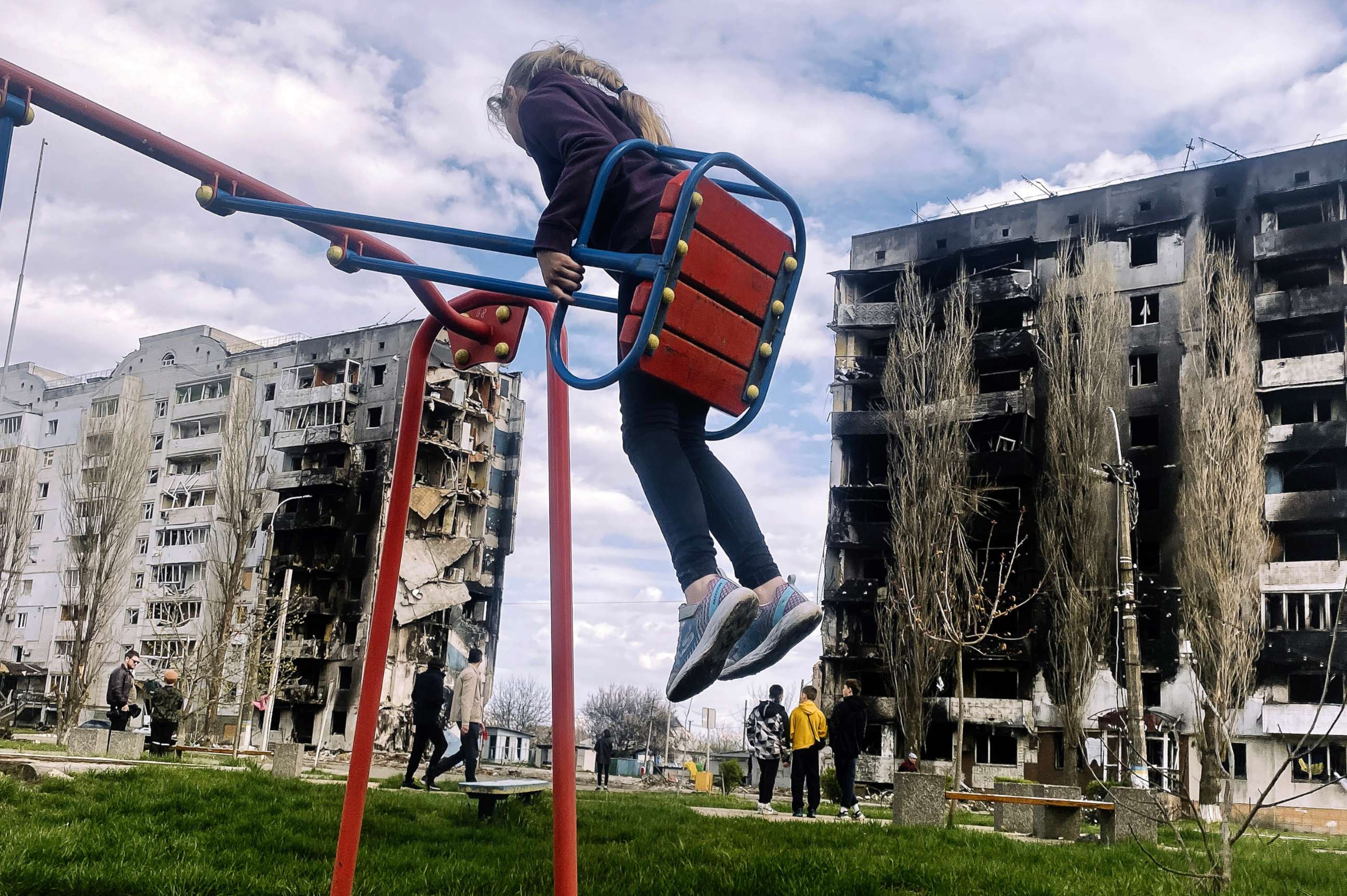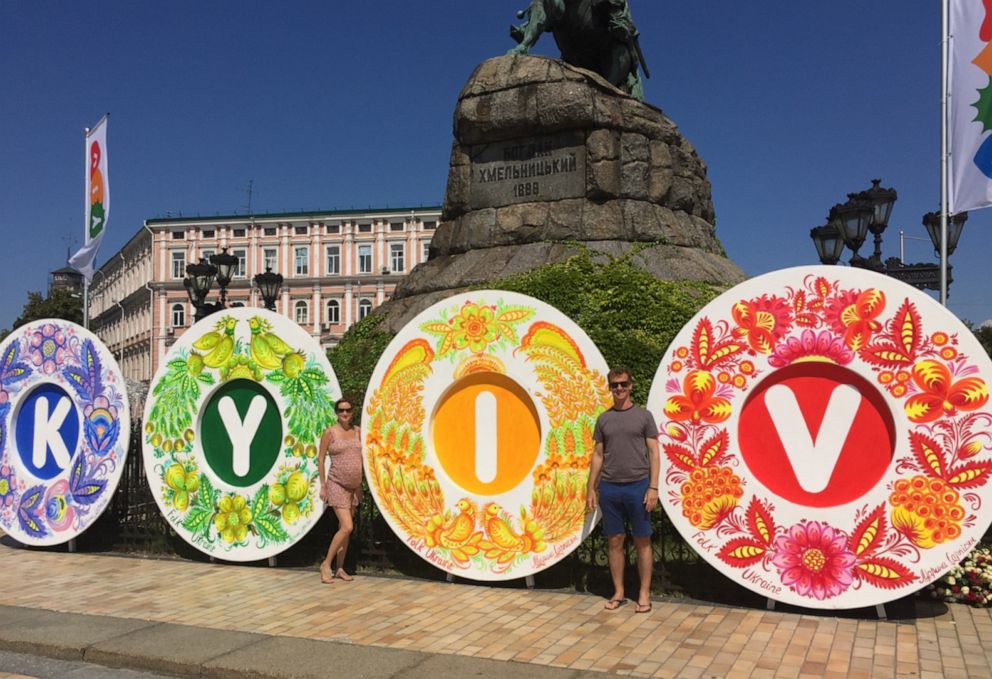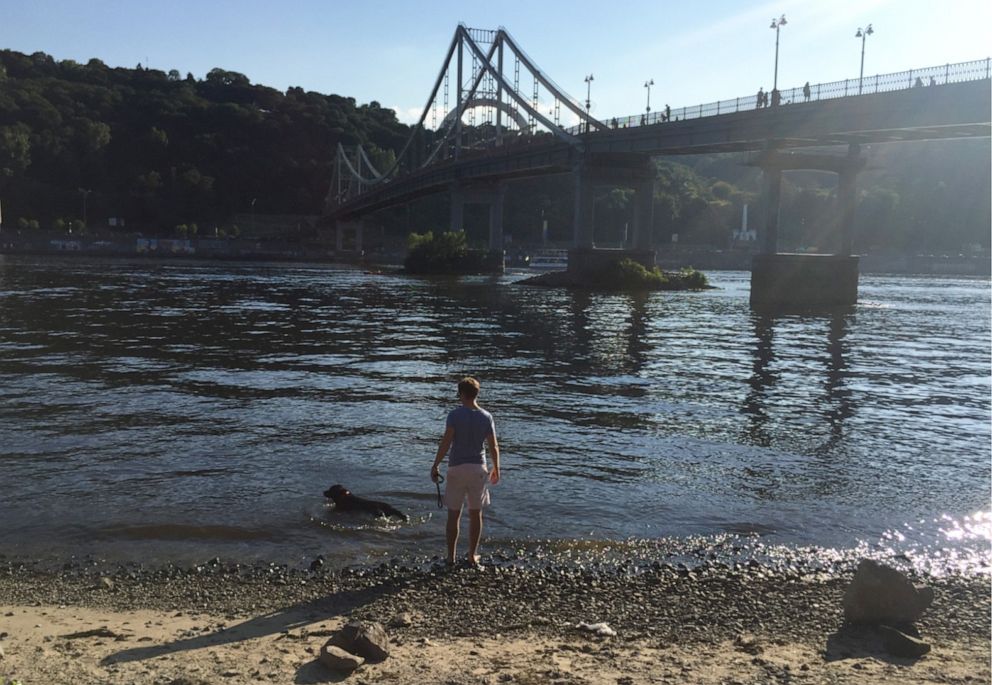Returning to Kyiv amid war: Reporter's Notebook
ABC News foreign correspondent Tom Soufi Burridge reports from Kyiv.
The drive back into Kyiv was a mix of emotions. This is a city I once called home.
I have a ton of happy memories from that period: The day I became a dad for the first time. A beach vacation in Odessa. And jogging countless times with our labrador, Emi, through Kyiv’s forests and along the beaches of the Dnipro river.
Whether a hedonistic wine festival or a cool hipster market, before the war, Kyiv was a city that could always surprise.
Today, as I return as a Correspondent for ABC News, the patriotic street art adjacent to our apartment block we lived in is still as impressive as ever.

Many of the cool cafes, bars and restaurants in my neighborhood are open and more and more people are returning to their homes. But my journey back, along the main highway to the west of the city, told the story of today.
Blackened buildings, wounded by Russian missiles, sit idle. A rusting carcass of a burnt out tank speaks of Russia’s defeat and retreat in this part of the country. Giant concrete-block checkpoints and piles of white sandbags dotted along the roads in almost every region of Ukraine reflect the unease and uncertainty over what will happen in the current phase of this war.
I, like so many others, never imagined that Russian President Vladimir Putin would invade. Because when I lived here, I saw the passion Ukrainians’ had for that desire many of us take for granted; life in a truly independent, democratic country without widespread corruption.
An attempt to occupy large parts of Ukraine looked like an unrealistic miscalculation.
During the eleven weeks since Russia invaded, the people of Ukraine have lived the unimaginable.
At the hospital where my daughter was born, babies were delivered in the basement. It was a private hospital run by a company called ISIDA. But in the early stages of the war, the hospital free for anyone.
“We understood that people needed help,” said Andrii Vilenskyi, ISIDA’s CEO.
As bombs fell nearby, Vilenskyi closed some of his medical facilities, concentrating staff in key buildings to ensure that they could still deliver babies. Back then, in the early stages of the war, I was back at our current family home in France. I would speak to Ukrainian friends on a regular basis.
And even as Russia advanced to the outskirts of Kyiv, virtually all of them were convinced that Ukraine would win.

“We have no other option,” they would tell me.
Today Ukraine is a very different country to the one I left in 2017. The plague of war, with guaranteed side effects of death and destruction, is all around.
On my second day back, a drive out to the suburbs of Kyiv, towns like Bucha and Borodyanka, where Russian troops committed countless atrocities was a sobering and somber experience.
Entire apartment blocks there have been obliterated by Russian bombs.
And even in the far west of the country, near the border of Poland, one of the most peaceful parts of the country, you don’t space the effects of the war.

My first night back in the country, in that region, the air raid sirens sounded. Locals barely flinch now when they go off.
My former home town Kyiv still has its charm.
But the war is pervasive. There is no real morning rush hour down Khreschatyk, the city’s main avenue near our former apartment. And every single person here is living this war.
Everyone knows people who are fighting for the Ukrainian military, people who have left their homes to seek safety abroad and people who have been killed by Putin’s invasion. But the determination, ingenuity and passion of Ukrainians, which I knew so well back then, is still alive and kicking today.
If anything, those characteristics have become more emboldened since Putin invaded Ukraine.



